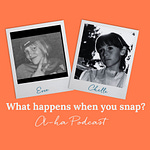When you’re struggling what do you say to yourself? Studies suggest many of us say horrible things to ourselves in these moments like: “You're so stupid!”, “You’re such a loser!”, “No wonder no one loves you!" or worse. Ouch!
“It’s natural when we feel personally threatened for our brain to go into fight, flee, or freeze,” explained Dr. Kristin Neff one of the world’s leading researchers on self-compassion when we interviewed her recently. “The challenge becomes when our brain believes that we are the problem we fight ourselves with criticism, we flee into shame by isolating ourselves, or we freeze and get emotionally stuck in rumination.”
For example, we use:
Self-judgement (i.e. “I’m such an idiot”) to try and keep ourselves safe. When we’re bumping up against our limitations it often feels safer to think we should be getting things right than to admit that sometimes even when we try our hardest, it’s not enough.
Isolation (i.e. “I can’t do anything right”) to separate ourselves from others to avoid more pain. When we’re falling short of our ideals it can feel safer to shame ourselves into believing there’s something fundamentally wrong with us because we are struggling while everyone else appears to be living problem-free lives.
Over-identification (i.e. “I can’t cope”) to remain hypervigilant about potential dangers. When we’re failing it can feel safer to lose ourselves within the worst of our thoughts and emotions rather than looking for the bigger picture and daring to hope for better future outcomes.
“This inner critical part really thinks it's trying to help us care for ourselves,” explained Kristin. “Unfortunately, it tends to exacerbate our pain by judging us for it, by feeling isolated and abnormal and becoming lost in it. It's not very effective compared to the support and warmth of self-compassion.”
How else might we show up for ourselves then when we’re suffering?
Instead of beating ourselves up for beating ourselves up, Kristin suggests asking: “What do I need right now to feel safe, calm, or supported?”
For example, we can reach for self-compassion and reduce the negative impacts of self-criticism by using:
Mindfulness (i.e. “I’m hurting”) to break free from struggle. When we’re stuck in harmful patterns, bringing awareness to how we’re feeling and what we’re thinking helps us realize we need help.
Kindness (i.e. “I’m here for you”) to support ourselves. When we’re hurting, being a good friend to ourselves who offers understanding, warmth, and care helps to soothe our suffering.
Connectedness (i.e. “Everyone struggles”) to balance our perspective. When we’re feeling alone, reminding ourselves that struggling is part of how human beings learn and grow helps to normalize the challenges we’re encountering.
“What we know from the research is when we increase the three positive components of self-compassion – mindfulness, kindness, connection – they automatically reduce the negative components of self-criticism – self-judgement, isolation, and over-identification,” explained Kristin. “It's almost like a seesaw, when one goes up, the others go down.”
We took away so many a-ha insights and practical tools from our recent podcast with Kristin, that we’ve recorded in this after-party podcast in the hope it supports your learning journey. Just hit play to join us.
Please note: We are mindful that ‘girl’ and ‘woman’ are socially constructed ideas of gender that can fall painfully short of defining the fabulous complexity of who we each are. If these words resonate with part of how you have previously or currently identified yourself we’d love to hear about your lived experiences.

















Share this post